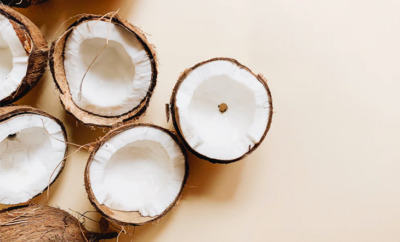5 Ingredients to Look for In a Great Protein Supplement

Protein is the building block that aids in the maintenance, growth and repair of your muscles. Due to the popularity and nutritional importance of this macronutrient, protein supplements are plentiful and in high demand. When you are in the market for a new protein supplement, shopping can be overwhelming. Do you go for pea, whey, soy, rice, egg, casein or another protein source? Do you try the vanilla, chocolate, tropical or cookies and cream? How do you factor in your personal fitness goals? There are so many things to consider when shopping for a protein supplement.
We’ve taken the guesswork out of it and did the research for you.
Here are 5 things to look for in a quality protein supplement:
1. Low Sugar
You make smart food choices throughout your day and don’t reach for the cookies in the kitchen at work, so why would you choose a protein supplement that is loaded with added sugar? We all want to try the double chocolate mocha and cake donut flavors of protein supplements, but these fun flavors are typically full of unnecessary added sugars.
While you want your protein supplement to pass the taste test, beware of added sugar that increases calories. When shopping for a protein supplement, it is important to look at the ratio of sugar to protein.
It is recommended that women should have no more than six teaspoons (24 grams) of sugar each day, while men should have no more than nine teaspoons (36 grams). In a protein supplement, unless you are looking to gain weight, you will want to choose a protein supplement with as little sugar as possible, ideally under a gram. This way, you can spread out your sugar intake throughout your day, and avoid a sugar spike and crash. The benefit of a low-to-no sugar protein supplement is that they are typically less processed and more nutritious. If a protein supplement is not sweet enough for your liking, you can always blend it with a banana or other fruit into a smoothie, and enjoy it as a meal replacement.
2. High Protein
Protein is an important part of a well-balanced diet. It helps your body perform optimally and gives you essential muscle-building nutrients. As you may have noticed when you are shopping for protein, there is a huge range of protein per serving from brand to brand.
When you shop for protein, it is important to look at the serving size listed on the nutritional label, not just the advertised protein per scoop. Serving size can vary greatly from brand to brand, so while you think one protein might be a better value than another, the front packaging can be misleading. For instance, one brand gives you 22 grams of protein in a 25-gram serving, while another brand may offer you 26 grams of protein in a 39-gram serving. You can calculate the protein yield by dividing the protein per serving by the serving size. By the math, it is clear that the first protein supplement gives you more protein (22/25=88% protein) per serving than the second example (26/39=66% protein) above. If cost and all other elements were equal, the first example is the best value.

3. Low Calories
Unless you are looking to drink a protein shake as a meal replacement, you may want to avoid a protein supplement that has 200 or more calories per serving. Some companies add filler to increase the serving size and to trick the consumer into thinking that they are getting more for their money. Those added fillers can also contribute to unwanted weight gain, as the calories that you are consuming are not necessarily from the healthiest ingredients.
When you pick out your next protein supplement, look at the calorie-to-protein ratio. Protein contains 4 calories per gram. So when you look for a protein supplement, you want the ratio of protein to calories to be as close to 1:4 as possible. For instance, if you look at a protein supplement that is 100 calories, it should be at or around 25 grams of protein. Whether you are looking to gain, lose, or maintain your weight, you want the leanest protein supplement that isn’t bulked up with excess sugar and other filler ingredients.
4. Few, Clean Ingredients
As a yogi, you know the importance of selecting clean, natural ingredients for your food and beverage choices. Ideally when selecting a protein supplement, you should be able to identify each ingredient without having to search online for its meaning. Your main protein source, whether it be soy, whey, casein, pea, hemp or another source, should be one of the first few ingredients (ideally the first) on the list. You should be able to locate the simple natural fruit flavors and ingredients, such as cocoa, vanilla and strawberry, or a natural sweetener in the form of stevia.
For your protein supplement, what is not in it is just as important as what is in it. When you read the nutrition label, you want to see as few ingredients as possible. A good rule of thumb is to avoid protein supplements with more than 10 ingredients, as those tend to have fillers in the form of synthetic ingredients, additives, preservative and artificial sweeteners, flavors and colors. You want to avoid artificial sweeteners, such as aspartame, sucralose, sucrose, dextrose, fructose, glucose polymers, and maltodextrin.
5. Protein Source
The right type of protein is all dependent on your individual dietary needs, food preferences, and goals. Below is a quick summary of the most popular protein sources:
Whey: a cow milk-based protein source that your body absorbs quickly.
Casein: also a cow milk-based protein source that is slow to digest.
Pea: an easy-to-digest vegan-friendly protein source that is naturally fat-, cholesterol-, dairy- and gluten-free.
Soy: vegan-friendly protein source that is slowly absorbed and digested, but organic sources are necessary due to modern-day farming practices.
Hemp: highly-digestible, vegan-friendly protein source that has high levels of omega 3, plus six fatty acids.
Rice: vegan-friendly and gluten-free, but it is lower in certain amino acids and should not be your sole source of protein.
Once you have accessed your needs, uses and preferences, you can select a protein source that will work best for your body and your lifestyle. Your body will let you know if a protein source is right for you, so listen to how your body responds and go with your gut…literally!
Beyond celebrity endorsements and pretty packaging, there are a few key elements that make great protein supplements stand out from inferior products. Look for these key elements when you shop for your next protein supplement, and you will be sure to complement your health and fitness goals and get the biggest bang for your buck!
Ready to try a new protein supplement? Use code: YA15 for 15% off your order of NuZest’s Clean, Lean Protein.


This Month's Letter
From the Editor
Monthly motivation and food for
thought from our founder.































Comments